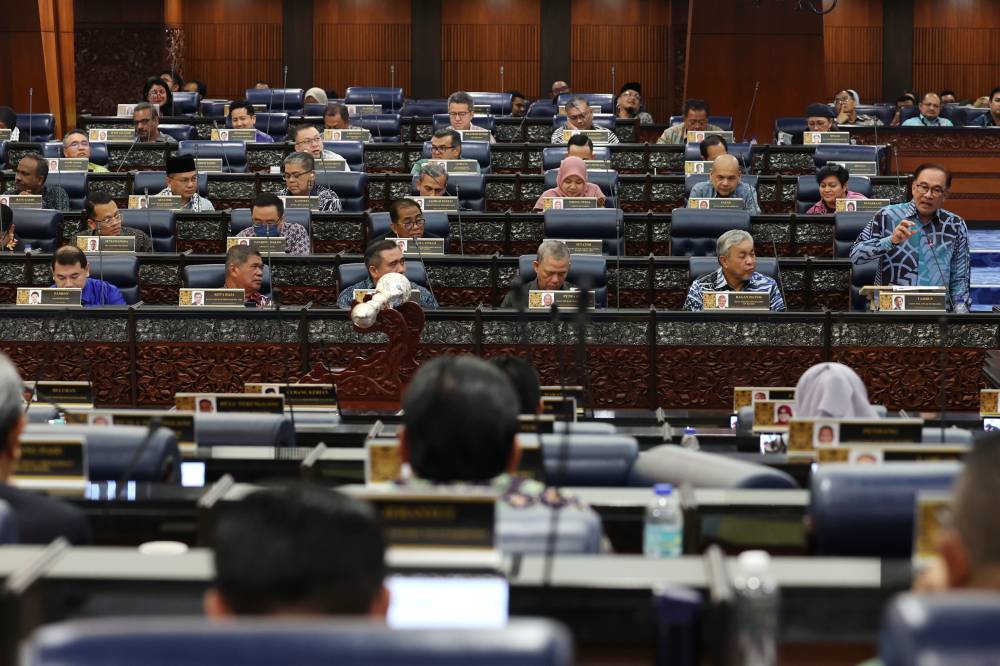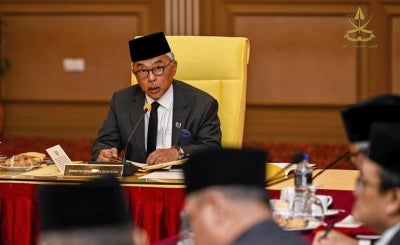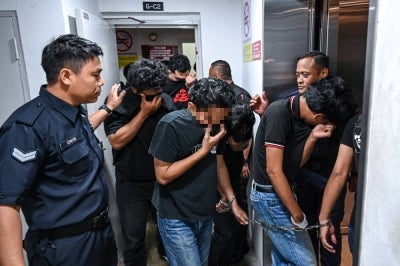Step down if unfit, no politician or leader irreplaceable - Analysts
Which is better to lead the country? The experienced veteran or the vibrant newbies?

SHAH ALAM - Seasoned politicians and leaders should recognise when it is time to step down, as younger, physically fit leaders are deemed more capable of effectively fulfilling their roles.
Old versus young, the clash between established old ideas and methods and the uncertain yet intriguing new ideas and approaches is mirrored in the Malaysian political landscape.
Veteran politicians who may be reluctant to step down despite health issues that might impede their capabilities collide with the ambitious younger generation eager for an opportunity to learn and lead.
The question is, which is better to lead the country? The experienced veteran or the vibrant newbies?
To gain deeper insights into this matter, Sinar Daily spoke to political analysts to get their views.
O2 Malaysia head researcher Anis Anwar Suhaimi said the issue of individuals with health challenges serving as MPs involves legal and moral considerations.
He said that legally, there were no explicit restrictions in the constitution or laws, but implementing such measures would require amendments or new regulations, possibly involving fitness declarations to the Election Commission.
“Morally, there is an emphasis on nominating candidates who are physically and mentally fit, especially for top leadership positions within parties, as exemplified by various politicians' health issues like Hadi Awang (Pas president Tan Sri Abdul Hadi Awang), Zahid Hamidi (Umno president Datuk Seri Ahmad Zahid Hamidi), (Economy Minister) Rafizi Ramli and Anwar Ibrahim (Prime Minister).
“While legally permissible, morally and practically, physically fit candidates are often preferred, particularly for significant leadership roles, given their direct impact on parliamentary and broader political responsibilities,” he said.
Anis also said that the outlook for Malaysia's 16th General Election (GE16) regarding voter preference for age in political leadership was complex.
“Malaysian voters prioritise party image and national issues over individual candidate qualities. The Prime Minister is chosen through a parliamentary process rather than a direct public election, impacting the age dynamic in leadership selection.
“While some desire younger leadership, structural political realities complicate this preference. Party dynamics and MP agreements often diverge from public sentiment on leader age.
“Thus, party image and national issues are expected to remain key factors driving voter choice in GE16, overshadowing individual candidate qualities,” he added.
Similarly, Academy of Nusantara Strategic Research (NASR) Senior Fellow Professor Dr Azmi Hassan said that the ability of a candidate or current representative to fulfil their duties depends on their individual capabilities and health condition.
He stated if the politicians were unable to perform effectively, it is their responsibility to step aside.
“However, this issue is not unique to Malaysia. In our society, representatives who are perceived as unreliable may still be respected due to their ability to communicate effectively and connect with people, despite their shortcomings in fulfilling their duties.
“This cultural perspective influences how such representatives are perceived and respected, reflecting societal values and norms,” Azmi said.
He also proposed that for GE16, candidates aged 80 and above should reconsider offering themselves, and those who have served more than three terms, regardless of their effectiveness, should give a chance to the younger generation with fresher and more vibrant ideas.
“This ensures a transition to newer perspectives and ideas,” he said.
Meanwhile, National Professors Council Senior Fellow Datuk Dr Jeniri Amir emphasised that it was crucial for politicians to recognise their limitations and know when it is time to step down.
“But the issue with some Malaysian politicians is their reluctance to acknowledge that they are past their prime and should make room for younger leaders. The truth is, no politician or leader is irreplaceable.
“Balancing age diversity among candidates is crucial for continuity in governance. Older candidates bring valuable experience and wisdom, while younger candidates offer fresh perspectives and innovative ideas.
“Both age groups contribute unique qualities: older candidates provide stability and wisdom, while younger candidates bring energy and the willingness to challenge the status quo,” he said.
Jeniri also highlighted that regardless of age, voters should prioritise candidates with strong leadership, integrity, and a commitment to serving the country's long-term interests.
Earlier this week, Pas President and Marang MP Tan Sri Abdul Hadi Awang was absent from the Dewan Rakyat proceedings on Feb 26 due to medical leave.
This raised eyebrows, especially considering Hadi's track record of attending only 33 out of 103 Parliament sessions since July 26, 2021, as reported by the MyMP database.
Responding to queries surrounding Hadi's whereabouts, his political secretary Mohd Syahir Che Sulaiman clarified that Hadi was not missing from Parliament but was on medical leave.
Syahir, who is also Bachok MP, said Hadi's health condition necessitated his absence and that he was in the midst of a recovery period, as advised by his doctors.
While Hadi's medical leave addressed the questions surrounding his absence, his non-attendance at such a significant parliamentary event highlighted the importance of MPs' regular participation in parliamentary proceedings.
The incident also prompted discussions regarding measures proposed by Dewan Rakyat Speaker Tan Sri Johari Abdul to display the names of MPs deliberately absent from parliamentary sittings on the Dewan Rakyat website, ensuring accountability to their constituents.
Prior to this, analysts had said Hadi should consider stepping back from active politics duties due to concerns about his health and the need for a new party leadership.
While they were of the view that while Hadi's absence from parliamentary proceedings was understandable due to health reasons, there was a growing sentiment that fresh leadership might be necessary for Pas to navigate the complexities of Malaysian politics effectively.
Aside from Hadi, Rafizi had also been hospitalised several times during his ministerial tenure. He had, however, attended 19 out of 31 Parliamentary sessions.
Due to the health issues and age factors of several ministers, the public had voiced their disatisfaction on how Malaysians had limited choices when it comes to choosing candidates during election, which analysts likened to a choice between ‘two evils'.
Download Sinar Daily application.Click Here!















